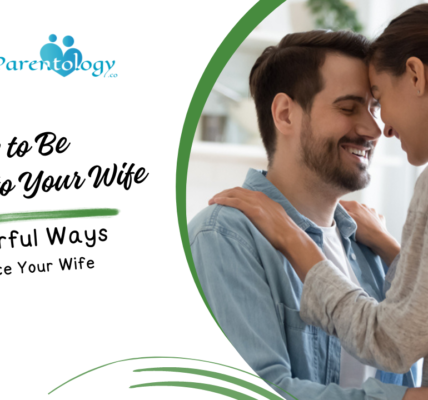Why Is Family Important: Exploring the Significance of Family Relationships and How to Foster Them
In the fabric of our lives, family stands as the foundational thread, weaving connections, love, and support. Understanding why is family important goes beyond mere bonds; it encapsulates the essence of belonging, shared experiences, and a sanctuary of unwavering support.
Exploring the Significance of Why Is Family Important
Family relationships form the bedrock of our existence, impacting our emotional, mental, and even physical well-being. Here’s a deeper insight into why family is pivotal:
1. Emotional Support and Nurturing Environment
Family offers a haven of emotional security and nurtures a sense of belonging. The support received from family members during challenges fosters resilience, contributing significantly to one’s mental health.
2. Shared Values and Traditions
Within families, values and traditions are passed down, fostering a sense of identity and cultural belonging. These shared rituals create bonds that strengthen familial ties.
3. Mutual Understanding and Communication
Effective communication within families nurtures understanding, resolving conflicts, and promoting healthy relationships. It encourages empathy, active listening, and mutual respect.


The Role of Family Relationships in Personal Growth
Beyond the immediate benefits, family relationships play a pivotal role in an individual’s personal growth and development:
1. Shaping Identity and Self-Perception
Family influences shape personal beliefs, values, and perspectives. The interactions within the family unit significantly impact an individual’s self-perception and self-worth.
2. Learning Life Skills and Resilience
From childhood to adulthood, family serves as a primary platform for learning life skills, problem-solving, and resilience, laying the groundwork for future successes.
Building Stronger Family Bonds
Stronger family bonds are another answer of why is family important. Nurturing family relationships involves intentional efforts. Here are actionable steps to strengthen familial connections:
1. Prioritize Quality Time Together
Devote time to engage in shared activities, fostering deeper connections and creating lasting memories. Whether it’s game nights, family outings, or simple conversations, quality time strengthens bonds.
2. Open and Honest Communication
Encourage open dialogues, where each family member feels heard and understood. Effective communication builds trust and understanding, resolving conflicts amicably.
3. Support and Encouragement
Offer support and encouragement within the family unit. Celebrate achievements, provide comfort during setbacks, and instill a sense of unity through mutual encouragement.
4. Establishing Family Traditions
Create and uphold traditions that hold sentimental value. Whether it’s holiday rituals, weekly traditions, or annual gatherings, these traditions foster a sense of unity and togetherness.


Strengthening Emotional Resilience through Family Bonds
Emotional resilience is a crucial aspect of our well-being, and strong family relationships play a pivotal role in nurturing it. A supportive family environment fosters emotional stability, helping individuals weather life’s storms with greater ease.
In times of adversity, having a network of loved ones provides a safety net, offering comfort, reassurance, and a sense of belonging. This emotional support system acts as a shield against stress, anxiety, and depression, promoting mental wellness.
Nurturing Healthy Communication Patterns within Families
Effective communication lies at the heart of robust family relationships. It’s not merely about talking; it’s about actively listening, understanding, and empathizing with one another.
Encouraging open dialogues allows family members to express their thoughts, feelings, and concerns without fear of judgment. Healthy communication resolves conflicts amicably, prevents misunderstandings, and strengthens the familial bond by fostering trust and respect.
Impact of Family Relationships on Personal Growth
The influence of family relationships extends far beyond childhood. Even as adults, our interactions within the family sphere shape our perspectives, choices, and aspirations.
Positive family dynamics instill values, ethics, and morals, shaping our character and guiding our decisions. Moreover, the emotional support and encouragement received from family members fuel our ambitions, contributing significantly to personal and professional achievements.
Strategies for Building Stronger Family Connections
While understanding why is family important, is crucial, actively nurturing and fostering these bonds is equally essential. Here are additional strategies to fortify familial connections:
1. Cultivate Empathy and Understanding
Encourage empathy within the family unit by acknowledging and respecting each other’s emotions, perspectives, and experiences. Understanding leads to stronger connections and healthier relationships.
2. Share Responsibilities and Celebrate Achievements
Inculcate a sense of shared responsibility by involving each family member in household chores, decisions, and celebrations. Acknowledging and celebrating achievements, no matter how small, fosters a supportive environment.
3. Address Conflicts Constructively
Conflicts are inevitable in any relationship. Teaching conflict resolution skills within the family unit helps in addressing disagreements constructively. Emphasize compromise, active listening, and finding common ground to resolve conflicts amicably.
Strengthening Bonds Through Shared Experiences
Shared experiences form the cornerstone of family relationships. Whether it’s through family traditions, celebrations, or overcoming challenges together, these shared moments create lasting bonds and cherished memories.
Importance of Role Models within the Family Unit
Family serves as the primary source of role models. Parents, guardians, and older siblings influence behavior, values, and attitudes. Positive role modeling within the family fosters desirable qualities, shaping the development of younger members.
Impact of Family Relationships on Child Development
In early childhood, the quality of family relationships significantly influences a child’s development. A nurturing and supportive family environment fosters emotional intelligence, cognitive abilities, and social skills, laying a strong foundation for future success.


Building Trust and Respect within Family Dynamics
Trust and respect are fundamental pillars of strong family relationships. Trust forms the basis for open communication, while mutual respect nurtures an environment where each family member feels valued and appreciated.
Strategies for Overcoming Family Challenges
Challenges are inevitable in any relationship, and family dynamics are no exception. However, navigating these challenges to get the answer of why is family important, requires patience, understanding, and a proactive approach:
1. Active Listening and Empathy
Encourage active listening and empathy within the family. Understanding each other’s perspectives promotes harmony and diminishes misunderstandings.
2. Establishing Healthy Boundaries
Setting boundaries within the family unit fosters respect for individual space and opinions. It’s essential to strike a balance between closeness and personal autonomy.
3. Flexibility and Adaptability
Family relationships evolve, and flexibility is key to adapting to changing dynamics. Embrace change positively and proactively address new challenges together.
Embracing Diversity within Family Relationships
Every family is unique, shaped by diverse backgrounds, beliefs, and experiences. Embracing this diversity fosters inclusivity, understanding, and appreciation for varied perspectives within the family unit.
Family Relationships and Social Development
Family interactions significantly impact social skills and behavior. Learning to navigate relationships within the family unit serves as a blueprint for how individuals interact with others outside the family circle.
Multigenerational Dynamics within Families
The dynamics between different generations in a family contribute to a rich tapestry of experiences and perspectives. Learning from elders and sharing insights with younger members fosters mutual respect and understanding.
Resilience and Coping Mechanisms Learned in Families
Family relationships serve as a training ground for developing resilience. Learning to cope with setbacks, conflicts, and challenges within the family prepares individuals to face adversities in other areas of life.
The Role of Extended Family in Support Systems
Extended family members often provide additional layers of support and guidance. Grandparents, aunts, uncles, and cousins enrich familial connections, offering diverse perspectives and shared wisdom.
Impact of Technology on Modern Family Relationships
Technology has transformed how families connect and communicate. While it bridges geographical gaps, maintaining a balance between virtual and face-to-face interactions is crucial for nurturing authentic relationships.
Financial Literacy and Values Instilled within Families
Families play a pivotal role in instilling financial values and literacy. From budgeting to responsible spending habits, these lessons have a lasting impact on individuals’ financial behaviors.
Addressing Diversity and Inclusivity within Families
In today’s diverse societies, families encompass various cultures, beliefs, and identities. Embracing diversity and promoting inclusivity within the family unit fosters understanding and respect for differences.
The Influence of Family Relationships on Health and Well-being
Positive family relationships correlate with better physical health outcomes. Emotional support and a nurturing environment contribute to reduced stress levels and overall well-being.


Balancing Individuality and Collective Well-being
Nurturing family relationships involves striking a balance between individual aspirations and the collective well-being of the family unit. Encouraging individual growth while fostering unity strengthens familial bonds.
FAQs About Why is Family Important
1. Why is family important in society?
Family relationships contribute to a stable society by nurturing individuals, promoting values, and supporting emotional well-being.
2. How do family relationships affect mental health?
Strong family relationships positively impact mental health, reducing stress and providing a support system during challenging times.
3. Can family relationships change over time?
Yes, family relationships evolve with time, influenced by individual growth, life experiences, and external factors.
4. What role do parents play in fostering strong family relationships?
Parents serve as role models, shaping family dynamics, communication patterns, and values, influencing the strength of family relationships.
5. How can distance affect family relationships?
Physical distance can challenge family relationships, but open communication, regular contact, and shared experiences can help maintain strong bonds.
6. What impact do family relationships have on children’s development?
Positive family relationships significantly impact children’s emotional and social development, fostering self-esteem and resilience.
7. How can conflicts be resolved within a family?
Effective communication, active listening, and mutual respect are key in resolving conflicts within a family unit.
8. Are family relationships essential for overall well-being?
Yes, strong family relationships contribute significantly to overall well-being, providing emotional support, stability, and a sense of belonging.
9. Can family relationships be improved if they have weakened over time?
Yes, intentional efforts such as communication, spending quality time together, and showing support can help strengthen weakened family relationships.
10. How can family relationships impact one’s sense of identity?
Family relationships shape an individual’s sense of identity by influencing beliefs, values, and self-perception.
Conclusion: Embracing the Essence of Family
In conclusion, the answer of why is family important is the transcends biological ties; it encapsulates a sanctuary of love, support, and shared experiences. Understanding and nurturing these bonds enrich our lives, contributing immeasurably to our growth and well-being.
For further insights and resources on fostering strong family relationships, visit Parentology.co.
By nurturing these familial connections, we weave a tapestry of love, resilience, and support, creating a foundation upon which generations thrive and flourish.
Infographics:





